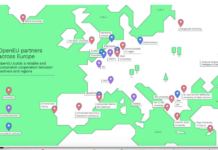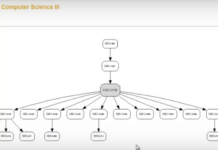Kolowich, S. (2012) The online pecking order Inside Higher Education, August 2
This article takes a careful and detailed look at different ways that students might convert MOOCs into formal university or college credits, using prior-learning assessment, e-portfolios or competency-based approaches. In the examples given, it’s possible but not easy or cheap. In other cases, it isn’t even possible.
Comment
For many, the point of doing a MOOC isn’t to get a university credit in the first place (water’s fine, thank you). For others, the argument is that a MOOC credit, if it comes from an elite institution, is better than a formal qualification from a middle ranking institution, in that it is more likely to impress an employer. This of course is a hypothesis that has yet to be tested, a least on a significantly large scale. But for many current MOOC learners, getting credit from conventional institutions for their MOOC study is irrelevant.
Second, one of the reasons for the success of MOOCs is precisely because currently it is so difficult to get credit for non-conventional learning in most of our universities in particular – or even worse, to be able to transfer credits from one institution to another in the same system. I’ve worked in a university where credit and non-credit students were taking the same courses for a post-graduate certificate online and the same exams, but non-credit students who got the same grades as the credit students weren’t allowed to transfer them into the masters program, because they didn’t have the qualifications needed for graduate school – even though they had demonstrated at least as much learning and knowledge. (Incidentally, this same university threatened to deny a student with a masters degree her Ph.D. after she had successfully defended her thesis because they found out that she did not have a bachelors degree – an error on the university’s part when she was admitted to the program. Only the personal intervention of the VP Academic and a special waiver from a Senate sub-committee prevented this absurdity)
I hope that over time, it will become less costly and easier to get credits for non-credit study, as governments press their institutions for more productivity in the form of less time to graduation. MOOCs could, with luck, speed up this process, as students demand to know from their state congressman why a Harvard MOOC is not recognized at Hicksville State University.
However, this whole discussion seems to me to be somewhat absurd, being based on a false premise about what should constitute a formal education, namely a banking system where you earn enough credits to pass ‘go.’ We have built a degree qualification system that is now as complex and as questionable as derivatives in banking. The drive for more accountability in the form of standardization of learning outcomes or competency-based learning or recognition of prior learning is likely to make the situation even worse, with admission officers using tape measures and stethoscopes to assess whether a MOOC credit is the same as a continuing education credit from the same institution, and whether it is worth one or two semesters’ study at first or second year for credit programs. We should be measuring output – or even better progress – not input.
Of course we could establish an organization where entry to all programs is open and free, but further progress and qualification requires showing development or progress in learning. We could call it perhaps an open university – or haven’t I heard that term somewhere else?









 Dr. Tony Bates is the author of eleven books in the field of online learning and distance education. He has provided consulting services specializing in training in the planning and management of online learning and distance education, working with over 40 organizations in 25 countries. Tony is a Research Associate with Contact North | Contact Nord, Ontario’s Distance Education & Training Network.
Dr. Tony Bates is the author of eleven books in the field of online learning and distance education. He has provided consulting services specializing in training in the planning and management of online learning and distance education, working with over 40 organizations in 25 countries. Tony is a Research Associate with Contact North | Contact Nord, Ontario’s Distance Education & Training Network.

[…] “nur” ein UMUC-Zertifikat. Die Sache ist also irgendwie noch nicht rund. Und Tony Bates weist zu Recht darauf hin, dass für die meisten MOOC-Teilnehmer ein solches Zertifikat wenig attraktiv […]